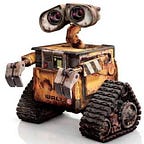Trash Is Nothing More Than a Design Error
When I look at almost any packaged product, I see waste. Likewise, when I visit a landfill, I see brands. And in the countries where I work, the deeper drama I see is that consumption waste lays beside human discards. We call it the two forms of waste, where the worst habits create useless stuff and people.
For me, as for many others, I cannot conceive of the future without transforming our “disposable lovers” society into one of “zero waste.”
But when we look at the huge problem trash has become, we usually try to solve it downstream with landfills, incineration for energy production, or recycling.
Truth be told, there is no sustainable way of burying or burning, and we think recycling should be the last process of a chain that must change from the beginning. We must rethink the whole to create a society that aspires to live in a world with no garbage, just like they did in the past.
Every single company that produces, imports, distributes, and/or sells consumable products should begin to identify how much garbage they are producing, importing, distributing, and selling. They must learn how to see, measure, and reduce the disposable parts of the product, starting with the huge amount of unnecessary packaging that is sold worldwide. Then comes the difficult moment when we must question our need for every disposable product we use. It’s totally absurd the quantity of products distributed worldwide that are used up in less than five minutes.
We know those products haven’t captured the real costs of the total value chain. That is an error of design that future generations will not forgive.
Finally, when a company has done the hard job of measuring, reducing, and establishing the challenges of collecting as much of its own waste as possible, then it can ask society at large to join in a partnership were everybody (consumers, authorities, NGOs, and street waste pickers) plays a role in keeping recyclable materials out of landfills.
We have developed tools to allow this ecosystem to move toward sustainability: measuring to help reduce waste in the value chain, and then inserting eco-design in the way to conceive the products; implementing changes to collection; building recycling stations to reduce waste by 90 percent; working with street waste pickers and other vulnerable communities to help them to become leaders in the process; creating systems to increase the NPS (Net Promoting Score) of the brand; and finally reincorporating recycled materials into production. That is a truly circular economy that repairs many of the errors of design.
Gonzalo Muñoz is co-founder and CEO of TriCiclos in Brazil, Chile, Argentina, and Colombia.
